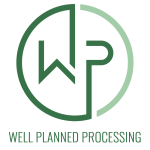Meta After the Shift: Reaching Homeschool Families the Smart Way
Facebook and Instagram ads aren’t dead — they’re just noisier. Moms never left; targeting got harder. With licensed homeschool audiences and smarter optimization, Meta remains one of the most powerful ways to build trust when integrated into a multi-channel strategy.
Programmatic Advertising: Staying Present in Long Cycles
Homeschool families don’t buy on the first click — they buy when life finally gives them room to decide. Programmatic ads keep you present across weeks or months, showing up at just the right moments. Built on verified homeschool audiences, they work as both a low-cost first touch and the final nudge toward trust.
Email Outreach: The First Conversation
Homeschool families don’t respond to hype — they respond to help. Email works best when it names the obstacles moms face, shows how those struggles play out in real life, and positions your product as the solution. Done right, the inbox becomes the first conversation that sparks word-of-mouth and builds loyalty.
Educational Philosophies That Shape Homeschool Choices
Homeschooling isn’t just about choosing books—it’s about choosing a philosophy. Parents often anchor their decisions in a teaching method that reflects their values, worldview, and goals. Whether Charlotte Mason, Classical, Montessori, or another approach, these philosophies shape nearly every curriculum decision homeschool families make.
The Homeschool Growth Cycle: Position Your Brand for Lasting Reach
Homeschool marketing isn’t about quick wins — it’s about trust and rhythms that last. Rebecca Farris explains why instant ROI rarely exists in this market and how four proven channels — email, DSP, Meta, and print — position brands for compounding reach. With insights from 20 years in the trenches, this post shows how to stop chasing clicks and start building loyalty that multiplies for years to come.
The Power of Word-of-Mouth in Homeschool Marketing
Homeschool families don’t just use products—they talk about them. A mom who finds the right planner or math curriculum will mention it at co-op, post about it online, and recommend it to her friends. That instinct to share makes word-of-mouth the single most powerful force in homeschool marketing.
Why Homeschoolers Are Brand Loyal (and What That Means for Marketing)
Homeschool families don’t buy casually. Once a company proves it understands their values and meets their needs, loyalty often lasts for years—sometimes even generations. That loyalty makes trust the most valuable asset in the homeschool market.
The Origins of Homeschooling: From Legal Battles to a National Movement
The modern homeschool movement didn’t start in curriculum catalogs or online forums—it was born in living rooms, courtrooms, and community meetings. From the 1925 Supreme Court case that affirmed parental rights, to the 1980s battles where families faced truancy charges, homeschooling grew out of conviction, courage, and community.
The Homeschool Market Explained: Who Families Are and Why They’re Different
Homeschooling didn’t begin as a trend—it began as a battle. In the 1970s and 1980s, parents in states like Tennessee risked fines and even jail time under truancy laws simply for teaching their children at home. Out of those struggles grew a tightly knit community built on trust, loyalty, and shared values. Understanding that history is essential for anyone hoping to connect with homeschool families today. What started as a fight for freedom has, within a generation, become one of the most distinctive and influential education markets in the country.















